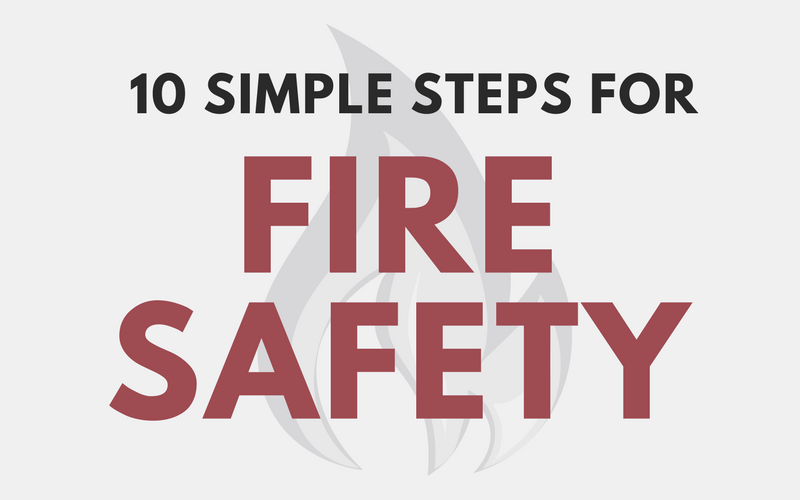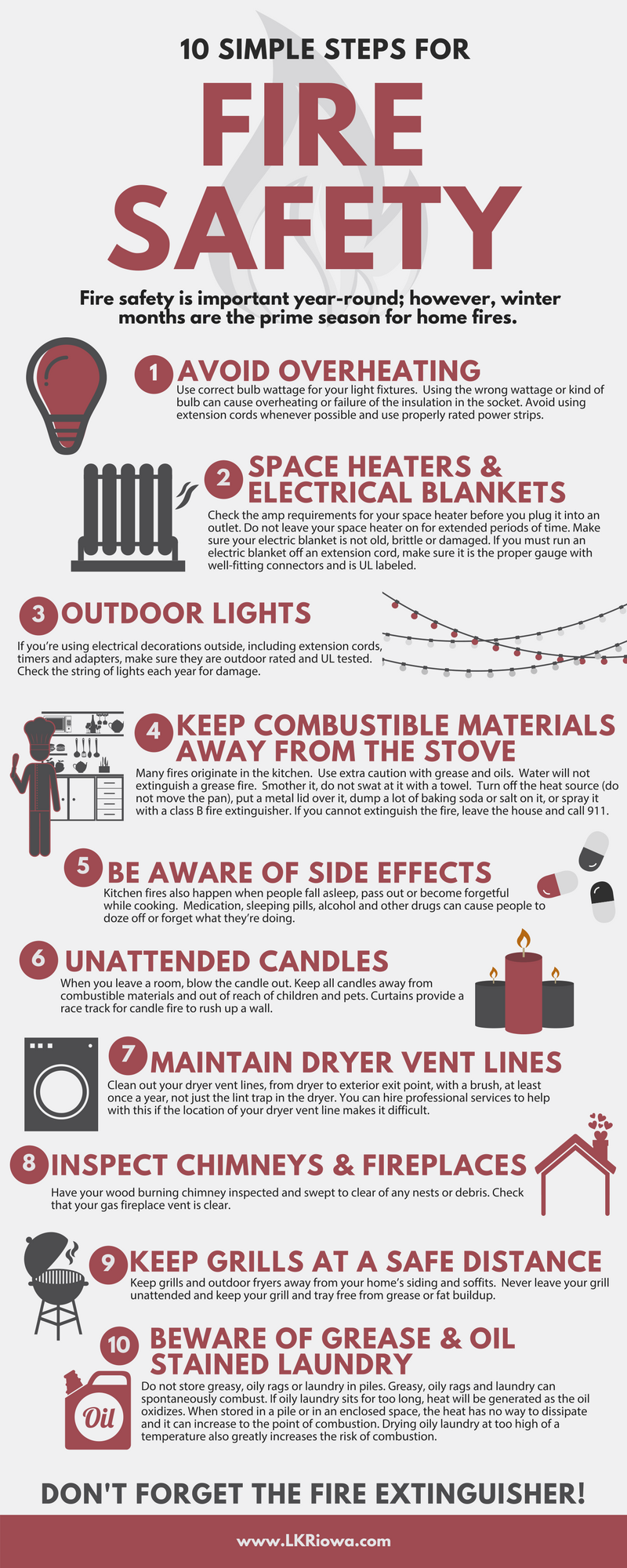LKR Agent guest post by Emily Farber
Fire safety is important year-round; however, winter months are the prime season for home fires. Cold weather and less daylight mean people are using lights, electrical holiday decorations, and heating devices for longer and in more ways than during other times of the year. The cold weather also dries out wood and can create primed environment for a spark to create a fire. Many fire hazards are preventable.
Here are some pointers to consider:
Smoke Detectors
As a Red Cross Disaster Action Team Lead, I often arrive at people’s homes during, or directly after a fire, and see firsthand the devastation a fire can cause to not only the structure and belongings, but also to the lives of the people who live there. Smoke detectors save lives. Make sure you have functioning smoke detectors on every level of your dwelling, outside of bedrooms, and one in each bedroom. Batteries should be changed every six months, and smoke detectors should be replaced every 10 years, even if they are hardwired into the home’s electrical system. Give them a good dusting with a vacuum house twice a year. If you have any gas burning appliances in your home (water heater, furnace, stove, fireplace, etc.) it is also important to have carbon monoxide detectors near sleeping areas.
Fire Extinguishers
It is important to have functioning fire extinguishers on all levels of your dwelling, in addition to the kitchen. Regularly check their pressure, and replace the extinguisher if low. According to Tina Humston, Captain with the Iowa City Fire Department, you should tip your fire extinguishers over occasionally, and tap on the bottom. This helps prevent the fire extinguishing materials from settling and caking on the bottom. She also recommends spending the extra money to buy fire extinguishers with metal fittings, rather than plastic, because they hold their pressure better.
Tips for Speaking to Your Kids
Regularly speak with your children about fire safety. Keep matches and lighters out of reach and teach them that they are not toys and are only to be used by adults. Discuss your emergency plan. How to get out of the house. Where to go, and wait to meet others. How to ask neighbors for help. How to call 911 and how to identify who they are and where they live. Why they should never re-enter a burning building. What to do if their exit is blocked. How to check doors for heat before opening. Why they should never hide under beds or in closets. Discuss and look at pictures of what a fully suited up fireman or firewoman looks like so your child is not afraid of him or her in a high stress situation. Practice “stop, drop and roll” and how and why to crawl out of a smoky room. Humston recommends the children’s book, “No Dragons for Tea: Fire Safety for Kids (and Dragons)” by Jean E Pendziwol and Martine Gourbault as a teaching resource for parents and educators of younger children (reading level of 3-7 years).
Insurance
Another important factor in protecting yourself is making sure that you have insurance. I can’t tell you the number of times I’ve been to a fire on behalf of the Red Cross and learned that the client does not have rental insurance and does not have the means to replace what has been lost. In most cases, landlords are NOT responsible for replacing a renter’s belongings, or reimbursing other losses. I also find that frequently mobile home owners do not have structure or content insurance, and unfortunately, mobile home fires often result in a total loss. Insure yourself to give yourself the ability recover from disaster.
Have Questions? Call.
Don’t be shy. Call the fire department if you have any questions or concerns, day or night. If you smell something suspicious, but you’re not sure what it is? Call. If your smoke or carbon monoxide detectors are going off even though you can’t find the source? Call. In the words of fire Captain Humston, “Call. We don’t mind. That’s why we are here.”






